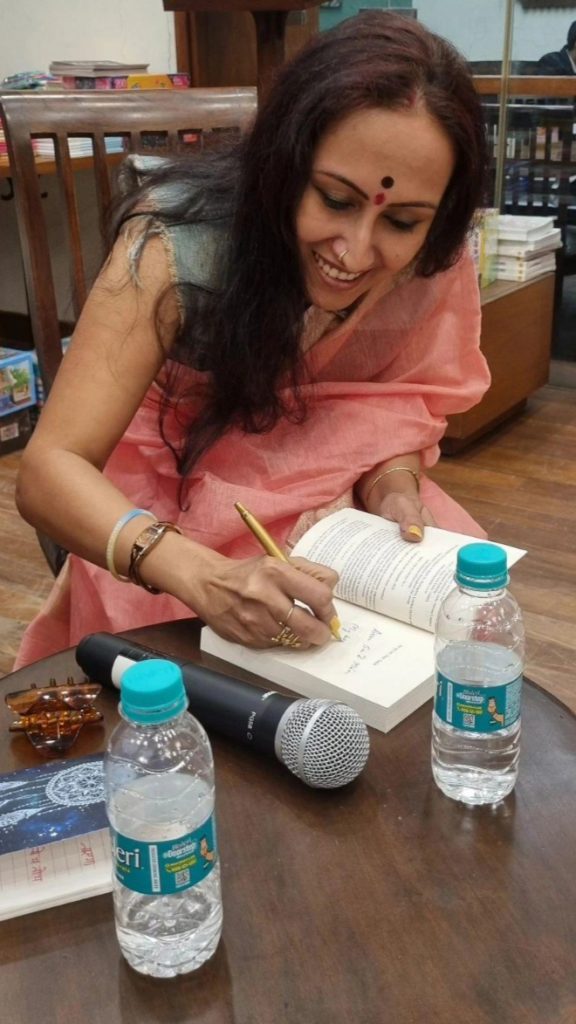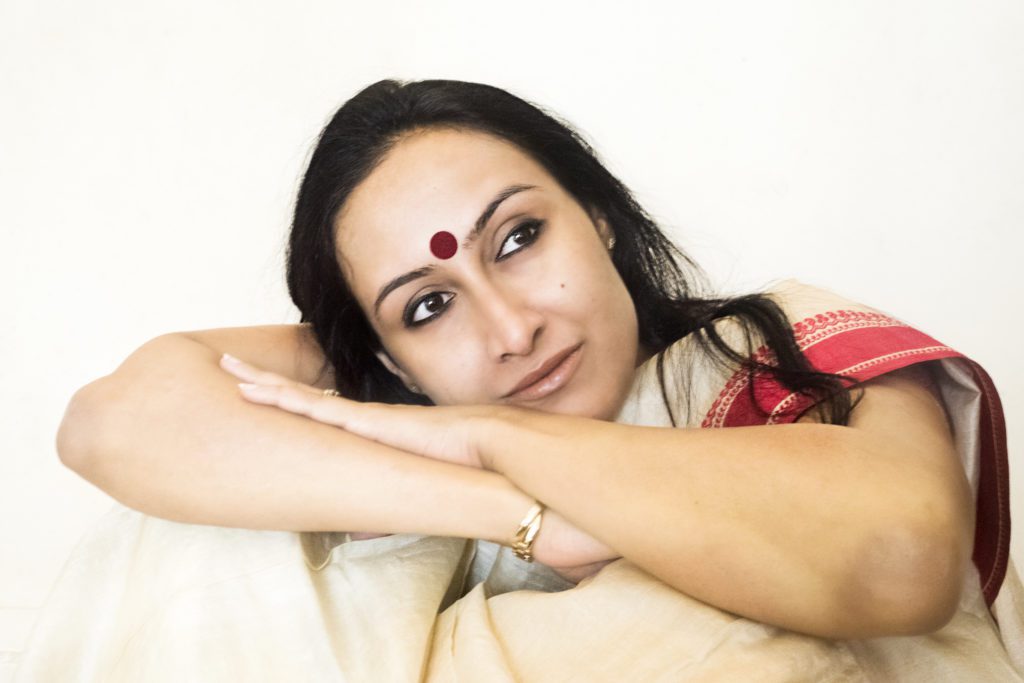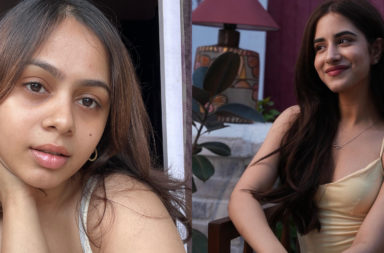Writing is an art. To be able to express one’s ideas, thoughts and opinions is a skill very few possess. India, a land of rich culture and heritage, has diverse stories attached to its belief and writing about India’s rich mythology is a flair that surpasses it all. Koral Das Gupta is the master of this artistry as she uncovers different layers of mythological fiction. She writes the stories we know very little about but are curious to know. The unsung heroes, the silent moment of courage, she narrates them so beautifully as though like the gentle breeze. Today, we celebrate Durga Ashtami with Koral Das Gupta as she enlightens us with her conversation about Goddess Durga and her many untold stories.

SN: In your research as a writer, have you come across any lesser known stories of Goddess Durga that fascinated you?
Koral: There are many. I will cite two that highlight the power of feminine energy. One is, in the Ramayana, Rama worshipped Durga before the great war. Ravan was a devotee of Shiva. The victory subtly shows Devadidev Shiva’s submission before the goddess. Also Durga or Parvati, in the incarnation of Sati ends her life when her father, Daksha insults her husband, Shiva. Angry Shiva performs the dance of destruction (tandav) with the remains of Sati on his shoulder. Another story that signifies the destruction that happens when masculine and feminine energies are separated. When the energies are unified, there is divine love and peace.
SN: Which qualities of Goddess Durga are the most essential in the contemporary world?
Koral: Durga is the warrior goddess known for killing evil forces. Durga is also the mother-goddess who ensures the safety, upbringing and well-being of her children. She is invincible, she is also loving. These basic qualities are not only for women but for all genders. The consciousness and courage to face the problems and rid them, because neglected problems become bigger problems. Also staying connected with the tenderness that allows one to be kind and compassionate.
The third eye of Durga representing awakened consciousness is a great weapon in order to strike the balance. As the sloka says, Ya Devi Sarva Bhutesu Shakti Rupena Samsthita – the Devi is present to all worldly beings (not just women) as their ultimate Shakti. Sometimes we fail to recognise our Shakti – the eternal courage and capacity we possess in order to ease ourselves from anything that is causing personal or social discomfort.
Also Read: IRCTC To Offer Meal Delivery On The Go Along With Zomato
SN: Can you explain the significance of the Goddess’s vehicle which is either a tiger or a lion?
Koral: The lion signifies grace, power and determination. The lion also symbolises our animal instinct. The Devi sitting on the lion signifies our need to control our animal instincts with our wisdom. Once again, Ya Devi Sarva Bhutesu Buddhi Rupena Samsthita.
SN: It is believed that Goddess Durga was created to fight the shape-shifting demon Mahishasura and she fought for a whole 10 days. Do you believe that mythology has the strength to empower women?
Koral: While writing my Sati Series, I realised that the women icons from Indian epics have been marginalized across many years by popular media. Women’s leadership as perceived in religious storytelling can influence the gender dynamics in society and interpersonal behaviour. It is hence important to understand the origin of religious texts and interpret their philosophical symbolism appropriately. Else, humans will continue to be exploited by religion instead of being benefited by its wisdom.

In Indian (especially Hindu) houses, the children are taken through the stories of mythology at a very young age to shape their imagination and pride for origin. They hear about brave men rescuing weak women whose foolishness caused wars. At a very tender age they learn to grow up with a gender bias. When feminism sparks later in life, they respond as activists and not believers. The truth of women icons from Indian mythology are immensely empowering and liberating, if the patriarchal translations are left behind.
SN: Can you briefly explain the nine avatars of the Devi?
Koral: Devi Durga manifests in nine forms. Shailaputri is her origin as the daughter of the mountains (Himalayas). Brahmacharini is her form as a tapasvini, performing penance to acquire knowledge and skills. The third avatar is Chandraghanta who hangs the arched moon on her head like a bell, suggesting that she is married to Shiva. Kushmanda is the ultimate source of life and power, she is the great creator. As Skandamata, she mothers Kartika or Kartikeya, also called Skanda. Katyayani is the warrior form of Durga where she goes after the evil demon, Mahishasura. Durga is fiercest as Kaalratri, where she assumes a dark skin to eradicate ignorance and arrogance. After Kaalratri has performed her duty, the darkness disappears and Mahagauri emerges with divine goodness. Siddhidatri, the last avatar is pure energy with no physical form where she presents herself as the Adi Shakti – meditative and giving.
Now if you look carefully, you will realise that the nine forms of Durga are the nine stages of a human life – the son/daughter, goes ahead to study and get trained, marries, becomes a parent, goes through many levels of struggles individually, as a family and also as a social participant. Eventually people learn many lessons and get refined, they start acting wisely. The final transformation is spiritual, when we are calm and observant, slowly fading into the energy form from the physical form.
SN: How does Goddess Durga’s role as a nurturer and protector intersect with her identity as a warrior, and what does this duality signify in terms of feminine strength?
Koral: In today’s language, perhaps I can say that she is a ‘working woman’. Everyone is a working woman – from a CEO to a homemaker. They only have agreed for different compensation packages. Durga’s duality signifies her importance in both ‘domestic’ and ‘professional’ world, if you know what I mean. Because every world requires cleansing and protection from corrupt forces; every world also needs affection and empathy.
As we celebrate Durga Ashtami, it’s evident that the timeless tales of Goddess Durga resonate with people not just for their supernatural elements but also for the deeper connection they carry with the modern work. Through Koral Das Gupta, we’ve explored how these mythological narratives can serve as allegories for the struggles and triumphs in our own lives, offering valuable lessons on strength.
Wishing you and your families a blessed Durga Ashtami.


